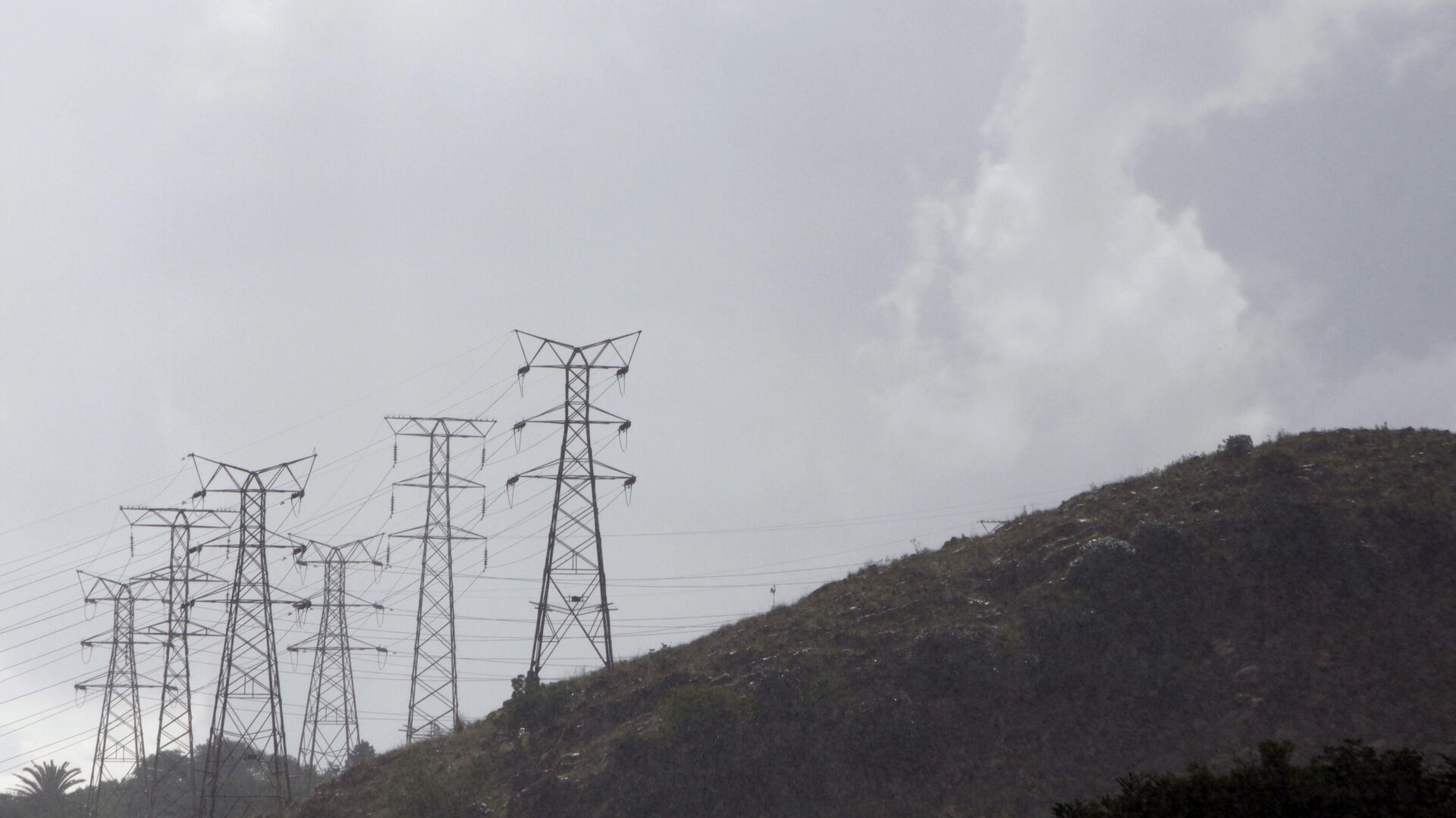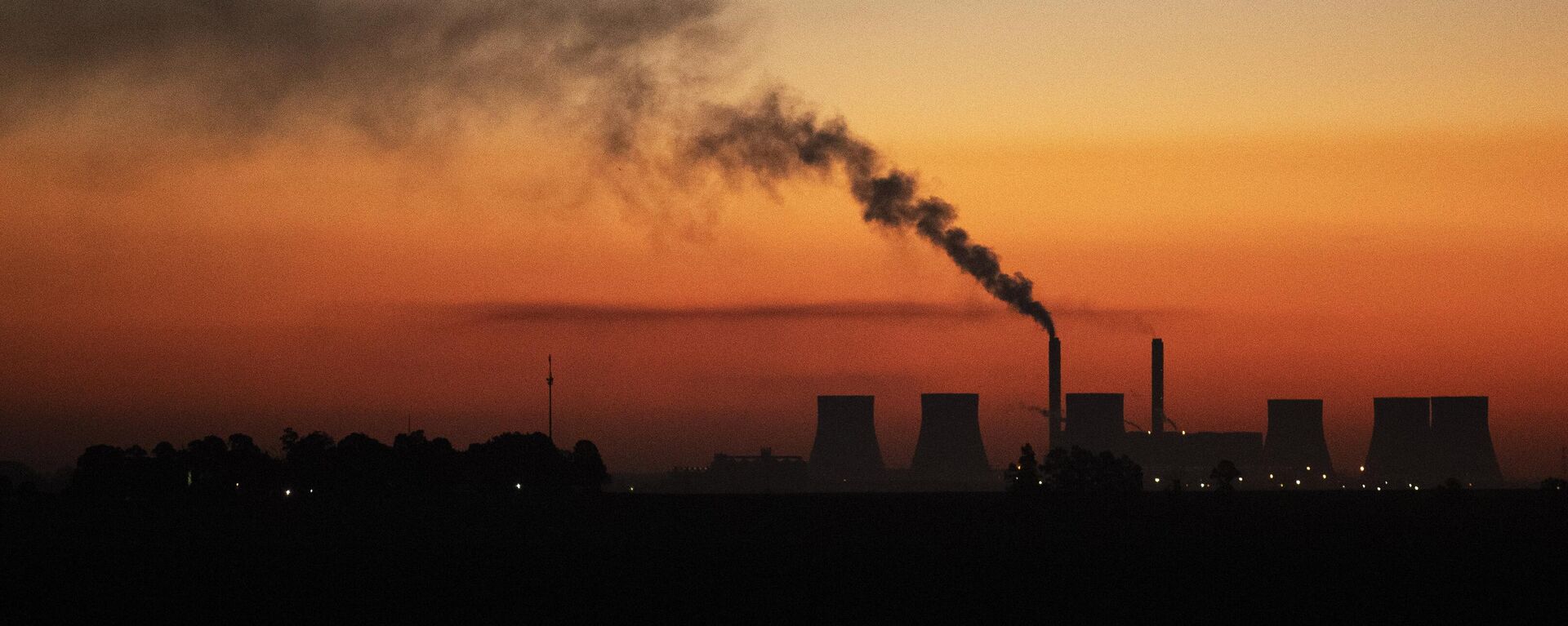https://en.sputniknews.africa/20230514/south-africas-eskom-yet-to-finalize-winter-load-shedding-plan-official-says-1059244547.html
South Africa's Eskom Yet to Finalize Winter Load-Shedding Plan, Official Says
South Africa's Eskom Yet to Finalize Winter Load-Shedding Plan, Official Says
Sputnik Africa
The national power utility Eskom has not finalized plans on how it is going to reduce load-shedding during the upcoming winter season, local media has reported.
2023-05-14T12:52+0200
2023-05-14T12:52+0200
2023-05-15T08:41+0200
sub-saharan africa
southern africa
south africa
energy crisis
energy
eskom
https://cdn1.img.sputniknews.africa/img/07e7/05/0e/1059244380_0:353:3013:2047_1920x0_80_0_0_1a4ff68ad6438ee2f944f13f97a51ed5.jpg
The national power utility Eskom has not finalized plans on how it is going to reduce load-shedding during the fast-approaching winter season, the head of project management in South Africa's presidency Rudi Dicks told local media.Speaking at a press briefing in Pretoria, the official said that a winter load-shedding plan has been drawn up and is expected to go through the approval stages before being adopted and presented to the public.The utility has recently confirmed that the number of power outages, caused by a lack of power supply to the grid, for the year 2023 has already overtaken that of 2022. The main reason for the frequent outages is that Eskom, a state company that supplies about 90 percent of the nation’s electricity, is unable to meet demand mainly because of its poorly maintained coal-fired plants. Moreover, Eskom estimated that over the next couple of months, demand for electricity is going to peak at at least 34,000 megawatts. At the same time, the utility has already lost 18,000 megawatts from unforced unplanned outages. The Electricity Minister, Kgosientsho Ramokgopa, for his part, warned that this winter will be particularly challenging. He once again raised concerns over the negative affect of load-shedding on the economy, including job losses.However, he also noted that Eskom has a 30Bln rand ($1.5Bln) diesel fund to use for open gas cycle turbines in cases of emergencies.Earlier this week, South Africa's President Cyril Ramaphosa said that the country needs emergency energy during the ongoing energy crisis to be able to mitigate the electricity deficit and solve related problems. For years, the nation has been facing daily power outages at peak times, which hamper the economic growth and interfere with every part of people's life. In February, the president declared "a national state of disaster" to overcome the electricity crisis. Even though the state of disaster was terminated last month, households and businesses continue to face regular power cuts.
https://en.sputniknews.africa/20230423/south-africa-electricity-minister-load-shedding-impossible-to-end-before-2024-1058797173.html
southern africa
south africa
Sputnik Africa
feedback@sputniknews.com
+74956456601
MIA „Rossiya Segodnya“
2023
News
en_EN
Sputnik Africa
feedback@sputniknews.com
+74956456601
MIA „Rossiya Segodnya“
Sputnik Africa
feedback@sputniknews.com
+74956456601
MIA „Rossiya Segodnya“
southern africa, south africa, eskom, utility firm, energy crisis, load-sheddin, head of project management in south africa's presidency rudi dicks
southern africa, south africa, eskom, utility firm, energy crisis, load-sheddin, head of project management in south africa's presidency rudi dicks
South Africa's Eskom Yet to Finalize Winter Load-Shedding Plan, Official Says
12:52 14.05.2023 (Updated: 08:41 15.05.2023) The country is experiencing a severe energy crisis, with state-owned utility firm Eskom imposing unprecedented nationwide black-outs, known as load-shedding. With outages now reaching six hours a day, the company is facing criticism for poor management and corruption.
The national power utility Eskom has not finalized plans on how it is going to reduce
load-shedding during the fast-approaching winter season, the head of project management in South Africa's presidency Rudi Dicks told local media.
Speaking at a press briefing in Pretoria, the official said that a winter load-shedding plan has been drawn up and is expected to go through the approval stages before being adopted and presented to the public.
The utility has recently confirmed that the number of power outages, caused by a lack of power supply to the grid, for the year 2023 has already
overtaken that of 2022. The main reason for the frequent outages is that Eskom, a state company that supplies about 90 percent of the nation’s electricity, is unable to meet demand mainly because of its poorly maintained coal-fired plants.
Moreover, Eskom estimated that over the next couple of months, demand for electricity is going to peak at at least 34,000 megawatts. At the same time, the utility has already lost 18,000 megawatts from unforced unplanned outages.
The Electricity Minister, Kgosientsho Ramokgopa, for his part, warned that this winter will be particularly challenging. He once again raised concerns over the negative affect of load-shedding on the economy, including job losses.
However, he also noted that
Eskom has a 30Bln rand ($1.5Bln) diesel fund to use for open gas cycle turbines in cases of emergencies.
"Eskom has got a 30Bln rand war chest to ensure that it is able to procure diesel [...]. I think I and the leadership of Eskom will make advances to the necessary authorities in government to make a case to the extent that would be necessary," he said.
Earlier this week, South Africa's President Cyril Ramaphosa said that the country needs
emergency energy during the ongoing energy crisis to be able to mitigate the electricity deficit and solve related problems.
For years, the nation
has been facing daily power outages at peak times, which hamper the economic growth and interfere with every part of people's life. In February, the president declared "a national state of disaster" to overcome the electricity crisis. Even though the state of disaster was terminated last month, households and businesses continue to face regular power cuts.


